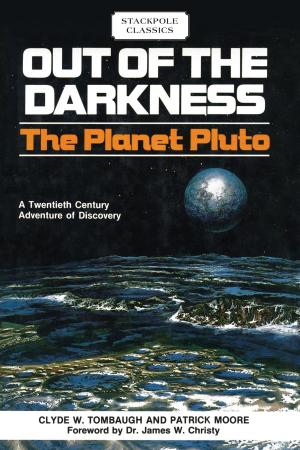We the Planet
Evolutionary Governance and Biophilia in the Anthropocene
Nonfiction, Science & Nature, Science, Earth Sciences, Physics, Astrophysics & Space Science| Author: | Walter Truett Anderson | ISBN: | 9780692793879 |
| Publisher: | Elsa Porter | Publication: | October 18, 2016 |
| Imprint: | Elsa Porter | Language: | English |
| Author: | Walter Truett Anderson |
| ISBN: | 9780692793879 |
| Publisher: | Elsa Porter |
| Publication: | October 18, 2016 |
| Imprint: | Elsa Porter |
| Language: | English |
Science is telling us that Earth has become a different kind of planet. There was a time when its life forms evolved according to rules similar to those described by Darwin and his colleagues Now we find that the rules have changed. Every ecosystem, every species, everything that happens in the air or the water or on the land is affected by what people do or have done. This is why many scientists believe it is time to proclaim an end to the Holocene Epoch, which began some ten to twelve thousand years ago, and recognize that we have now entered a new epoch, the Anthropocene, in which human activity has come to rival nature as a force in the evolution of life on Earth.
We are stepping out onto a wider stage than the human species has ever occupied or imagined before, forming a new sense of our place in the universe and—whether we want it or not—of our responsibility on Earth. And we have every reason to be absolutely terrified by that prospect.
Are we up to it? It’s quite possible that we aren’t—that Homo sapiens, sapient or not, simply isn’t far enough down from the trees and out of the caves to handle an evolutionary challenge of such monumental difficulty and complexity. If we do succeed, we won’t simply owe it to our scientific and technological achievements—although they will certainly play a major part—but because we have successfully advanced our capacities to function at appropriate levels of cognitive and emotional development. We are going to have to rely on our own equipment as embodied minds, our capacity to recognize, cultivate and act on the felt connection to life that is sometimes called biophilia.
From We The Planet
Science is telling us that Earth has become a different kind of planet. There was a time when its life forms evolved according to rules similar to those described by Darwin and his colleagues Now we find that the rules have changed. Every ecosystem, every species, everything that happens in the air or the water or on the land is affected by what people do or have done. This is why many scientists believe it is time to proclaim an end to the Holocene Epoch, which began some ten to twelve thousand years ago, and recognize that we have now entered a new epoch, the Anthropocene, in which human activity has come to rival nature as a force in the evolution of life on Earth.
We are stepping out onto a wider stage than the human species has ever occupied or imagined before, forming a new sense of our place in the universe and—whether we want it or not—of our responsibility on Earth. And we have every reason to be absolutely terrified by that prospect.
Are we up to it? It’s quite possible that we aren’t—that Homo sapiens, sapient or not, simply isn’t far enough down from the trees and out of the caves to handle an evolutionary challenge of such monumental difficulty and complexity. If we do succeed, we won’t simply owe it to our scientific and technological achievements—although they will certainly play a major part—but because we have successfully advanced our capacities to function at appropriate levels of cognitive and emotional development. We are going to have to rely on our own equipment as embodied minds, our capacity to recognize, cultivate and act on the felt connection to life that is sometimes called biophilia.
From We The Planet















